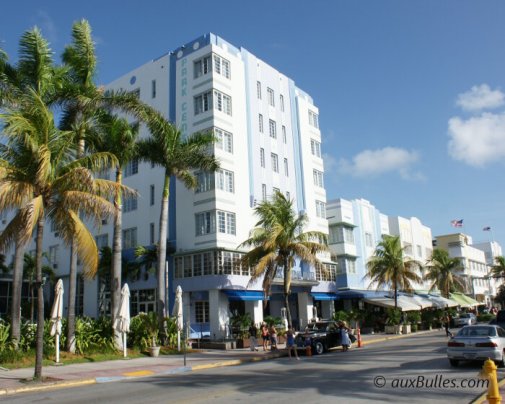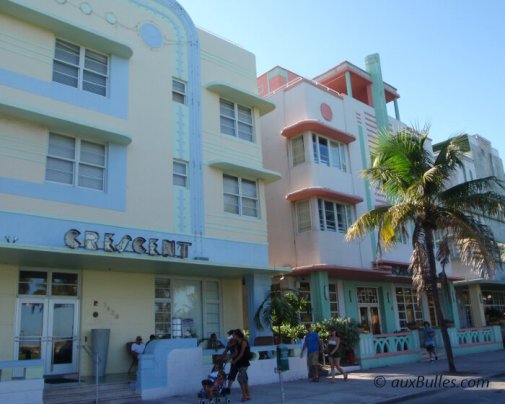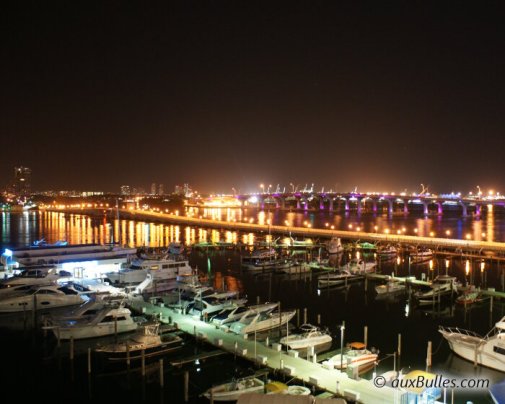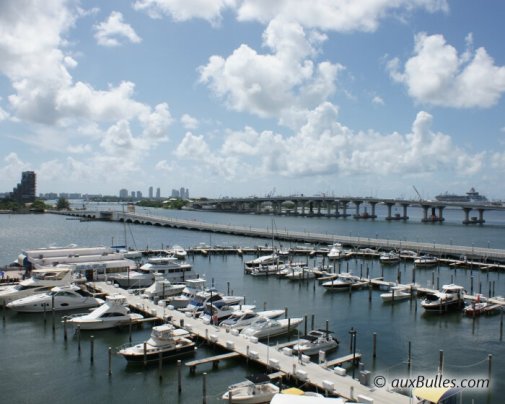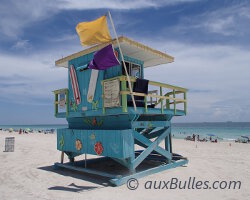
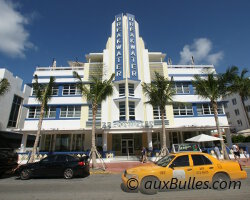
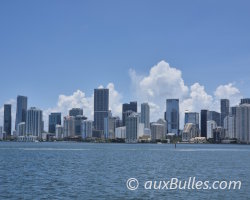
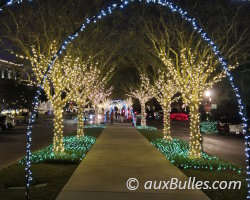
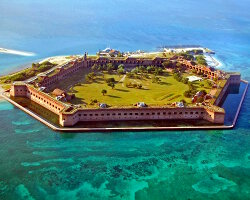
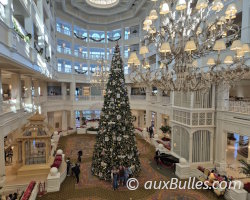
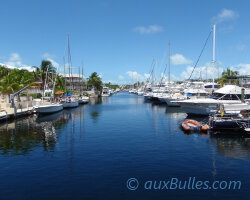
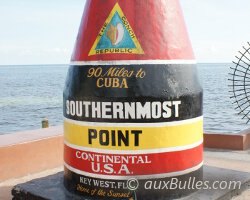
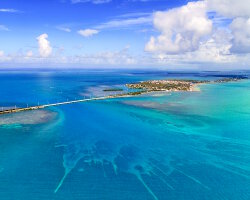
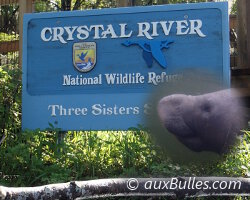
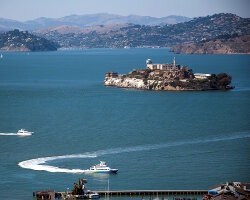
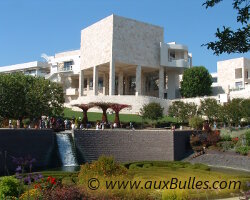
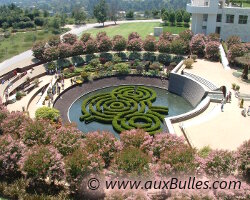
Florida travel guideThe Art Deco districtMiami Beach, Florida
Last updated on 02/18/2026 at 11:27 PM
The « Art Deco District » is located in Miami Beach, a seaside resort located at the gates of Miami, Florida. With its 1920s architecture and incredibly vibrant pastel colors, the « Art Deco District » sees tourists flocking throughout the day !
A retro atmosphere
The « Art Deco District » has been listed since May 1979 under the official name of « Miami Beach Architectural District » on the « National Register of Historic Places » of the United States. This register lists the official historic sites that deserve to be preserved across the United States.
Indeed, with the largest concentration of buildings showcasing 1920s and 1930s architecture in the United States, this district undoubtedly deserves its place among the remarkable sites to preserve !
South Beach's Art Deco District is a true architectural gem. Its pastel façades, geometric lines and stylized details capture the charm of the 1920s and 1930s. Strolling along Ocean Drive, discover iconic hotels like the Colony, Breakwater, Carlyle and Crescent, symbols of the era's luxury and festive spirit.
Beyond the hotels, the district is full of carefully preserved public buildings and private residences. Pastel colors, neon lighting and symmetrical shapes create a retro yet lively atmosphere, perfect for walking, taking photos and admiring Miami's Art Deco heritage.
A district with many facets !
The « Art Deco District » officially stretches approximately over an area bounded to the south by « 6th Street », to the north by « 23rd Street » and « Dade Boulevard », to the west by « Alton Road » and finally to the east by the Atlantic ocean.
The quick development and layout of the district in the 1920s, during the flourishing of the Art Deco artistic movement, gives it an architectural style of extraordinary coherence. The « Art Deco District » is mainly divided into three distinct zones based on the purpose of the buildings constructed.
First, a zone of small pastel-colored hotels along the beach facing the Atlantic ocean stretches along « Ocean Drive » and « Collins Avenue ». Then, a zone of small shops spreads along « Washington Avenue » and « Lincoln Road ». Finally, a residential zone is organized around « Flamingo Park ».
Helpful tips
The « Art Deco District » is accessible from Miami via 5 roads that take you across Biscayne Bay to Miami Beach. But there are also many routes to escape when the time comes after your visit, depending on traffic !
Indeed, Miami Beach is connected to the mainland to the south and north respectively by two main arteries that cross the water through Biscayne Bay: the « Mac Arthur Causeway » and the « Julia Tuttle Causeway », actually « Interstate 195 », which both concentrate traffic during rush hours. Secondary access roads also connect from south to north, including the « Venetian Causeway », positioned between the two main arteries, the « John F Kennedy Causeway » and the « Broad Causeway ».
The « Mac Arthur Causeway », illuminated in purple at night, extends into « 5th Street » and ends facing the Atlantic Ocean at « Ocean Drive ».
Top must-see places in Miami Beach

Miami Beach

A walk down Ocean Drive
Top must-see places in Florida

Biscayne Bay

The magic of Christmas decorations

Dry Tortugas islands

Christmas magic at Disney hotels

Key Largo island

Key West island

The Florida Keys, a necklace of islands in a turquoise setting

Swimming with manatees in Crystal River
Must-see places in the United States

Alcatraz island

A visit to the Getty Center

The Getty Center with its ponds
Our latestUpdates
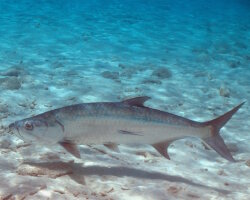
Wednesday, February 18th 2026
The Atlantic tarpon
The Atlantic tarpon is a large coastal fish that can grow up to 8 feet long and weigh over 330 pounds, with a silvery body covered in large, reflective scales. Known as the Silver King, it is famous for its spectacular leaps and fierce fight when hooked by sport fishermen.
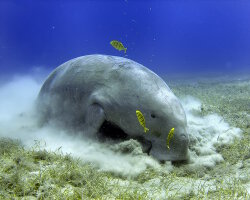
Friday, January 30th 2026
The dugong
Discover the dugong, a gentle “sea cow” of tropical waters. Learn about its habitat, diet, reproduction, morphology, and the threats facing this unique marine mammal.
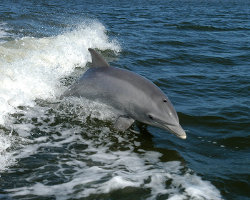
Friday, January 23rd 2026
Dolphins: ocean's smartest creatures
Discover dolphins, the ocean's geniuses: explore their intelligence, social behavior, sophisticated communication, species diversity and vital role in marine ecosystems.
Photo of the Day
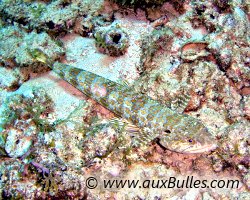
Poisson lézard, anoli
(Synodus intermedius)
(Synodus intermedius)

